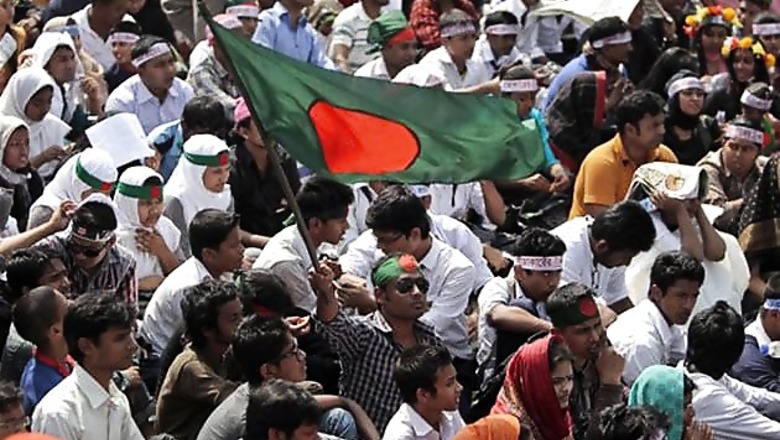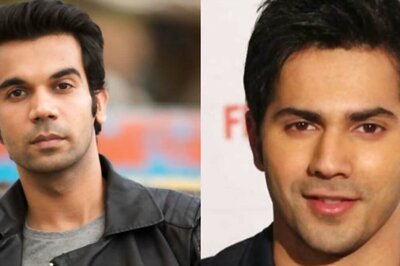
views
Dhaka: Bangladesh Parliament on Sunday amended the war crimes law to allow the prosecution to try and punish any organisations, including the Jamaat-e-Islami, a significant move that could pave the way for banning the country's largest Islamic party. The move was cheered by tens of thousands of protesters who have been camping in Shahbagh for the past 13 days demanding a ban on Jamaat, whose leaders are on trial for war crimes allegedly committed in the 1971 war of independence from Pakistan.
The amendment was brought during the passage of the much-talked-about bill which also brought some other changes to International Crimes Tribunals Act, 1973 to allow the government and informants and complaints to appeal against any verdict of the war crimes tribunals.
Before the amendment, the law allowed only the convicts to appeal against any conviction. The government brought the changes to the law in the wake of the ongoing mass movement at Shahbagh in the capital and elsewhere in the country.
The move also came after an anti-Islamist blogger was killed on Friday amid the massive protest against the leaders Jamaat. People burst into protest on February 5 when a verdict delivered by a war crimes tribunal sentenced Jamaat leader Abdul Quader Mollah to life in prison. The protesters feel Mollah was handed down "a lenient sentence" and that he should be awarded the death penalty.
On Wednesday, the law minister placed the bill in the Parliament proposing changes to the act to empower the government and people unhappy with any judgment of a war crimes tribunal to appeal.
Earlier in the day, Law Minister Shafique Ahmed indicated the government may ban the political activities of Jamaat. "The parties which practice politics killing people including law enforcers and damaging properties of public should not be allowed to run in any democratic country," he said. Shafique said the election commission can take steps on banning the politics of Jamaat-e-Islami (JI) if it finds inconsistency between the constitution of the party and the charter of the republic.
On Saturday, after visiting the slain blogger Ahmed Rajib Haidar's house in the capital's Pallabi area, Prime Minister Sheikh Hasina said Jamaat and its students wing Islami Chhatra Shibir have no right to practice politics in Bangladesh as 'they do not believe in democracy. They believe in terrorism and practice politics of terrorism.'
Meanwhile, the Shahbagh protest that began on February 5 rolled into the 13th straight day on Sunday. The protesters, who have been demonstrating in demand of capital punishment to the 1971 war criminals, vowed to prevent Monday's hartal called by Jamaat-e-Islami.


















Comments
0 comment